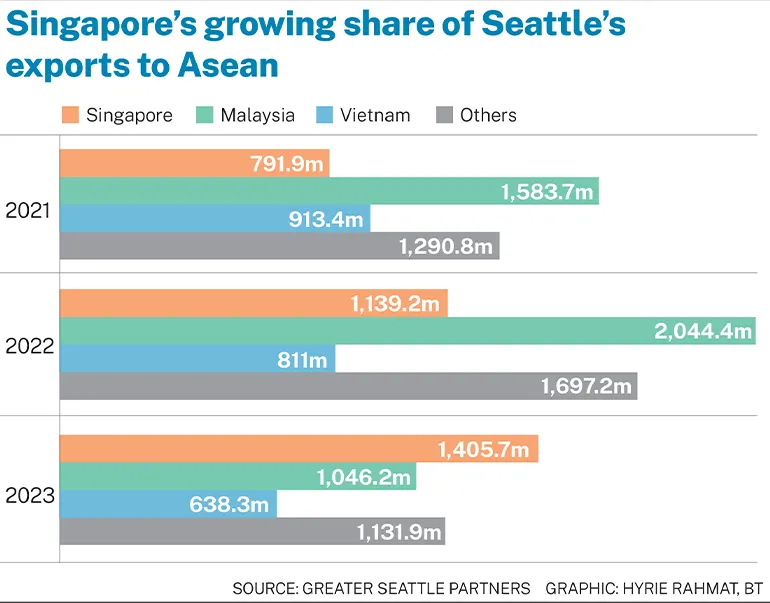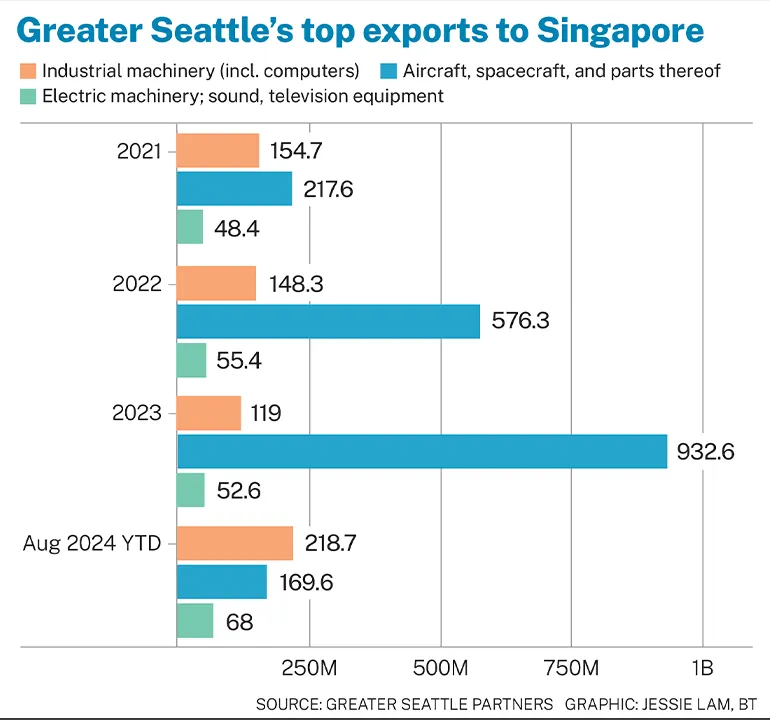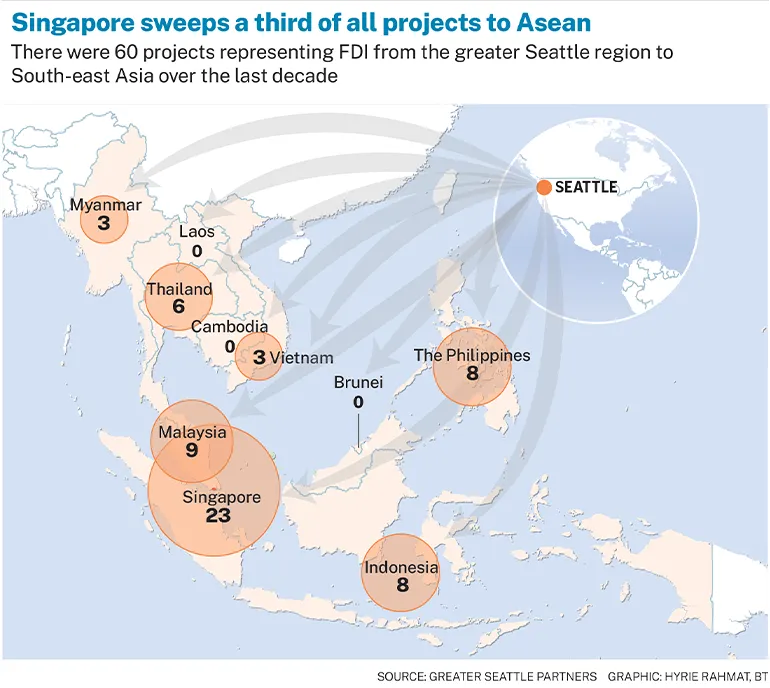Like Singapore, Seattle is known for its tech workforce, which serves as a valuable resource for tech startups requiring skilled talent to grow their operations, says Lim Seow Hui, director of the Americas division at Enterprise Singapore (EnterpriseSG).
EnterpriseSG is a government agency championing enterprise development.
Lim adds that Seattle, as the northernmost major American city, provides access not only to the US but also Canada.
“Singapore transport and logistics companies, such as Singapore Airlines (SIA) and SATS, have expanded to Seattle, tapping it as the closest US port to Asia,” she notes. The hub’s “strong connectivity” also supports “customers’ interests beyond the city to other regions in the US and Canada”, she adds.
An SIA spokesperson tells The Business Times that Seattle serves as an “important market” for the national carrier, as one of the fastest-growing cities in the US with a strong and diverse economy.
“Prior to the launch of services between Singapore and Seattle, SIA had a long-term presence in Seattle via a dedicated local sales team that has served the market for more than three decades,” says the spokesperson.
Citi’s head of technology investment banking for the Asia-Pacific, James Perry, agrees that Singapore is an important trading partner for the US – particularly in a number of areas relevant to the Greater Seattle area.
Seattle is home to US aerospace and tech behemoths while the wider area captures several semiconductor companies, notes Perry.
“As Singapore continues to invest in focus areas, such as high tech and aerospace, the country has naturally become a strong partner and customer to many of these companies and others like them,” he says.
“The relationship sees both (Singapore and the US) benefitting.”
Other strong pull factors include Seattle’s rich talent pool and favourable business environment.
Eugene Tan, associate economist at Moody’s Analytics, says: “Its position as a global tech hub allows Singapore firms to access key technologies and infrastructure, which is key for a successful overseas venture.”
The Republic offers similar advantages for Seattle companies with its highly educated, skilled, largely bilingual workforce, along with its pro-business climate and stable political environment that allow foreign firms to operate with peace of mind, he adds.
US firms descend
The growing bilateral trade between Singapore and the Greater Seattle area is a reflection of strong trade ties between the Republic and the US, says EnterpriseSG’s Lim.
The US is Singapore’s top investor, while the city-state is its third-largest Asian investor.
“Singapore and Seattle share similar strengths,” says Lim. As a hub for the Pacific North-west, Seattle presents opportunities in digital tech, clean energy, logistics, and the consumer and lifestyle space – areas in which Singapore also thrives.
These synergies have been recognised by many Seattle-based companies, Lim notes, pointing out that corporate giants such as Amazon and Boeing have set up their regional headquarters in Singapore as a springboard into Asia.
In May, cloud computing subsidiary Amazon Web Services announced that it was pumping an extra S$12 billion into its existing Singapore cloud infrastructure over the next four years, doubling its investment in the Republic.
The move is hot on the heels of a similar S$11.5 billion injection last year.
Amazon joins the ranks of other American tech giants – think Apple, Google, Microsoft, and Nvidia – which have been upping the ante in Singapore and the wider region in pursuit of greener pastures and diversification beyond China.
Planting Seattle’s seeds in the Garden City
However, higher operating costs may put Singapore at a disadvantage against its Southeast Asian peers.
While 38.3 per cent of all the projects Greater Seattle companies invested in ASEAN were captured by Singapore, the Republic accounted for only about three per cent – or US$500 million – of the US$16.1 billion in total capital investment.
This disparity between project volume and capital intensity directed to Singapore could be explained partly by the higher costs of operating here, compared with neighbouring ASEAN countries, says Tan of Moody’s. Land space, too, is limited.
However, despite these barriers, Singapore can still position itself as a compelling investment destination, he notes.
“To mirror Seattle’s success, Singapore can enhance its appeal as a global talent hub and actively work on developing a strong and resilient tech sector,” he says. “Collaborations with overseas business partners will help to expand Singapore’s digital footprint.”
Mali Chivakul, emerging markets economist at private bank J Safra Sarasin, agrees.
“The AI sector currently requires significant infrastructure to support the computing power, including data centres,” she explains. “As a small nation with limited resources, Singapore cannot avoid being selective of power-intensive projects.”
She adds: “It should instead leverage its position as a digital hub of the region to connect with data centres in neighbouring countries.”
Source: The Business Times © SPH Media Limited. Permission required for reproduction.












